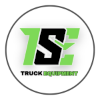Commercial truck financing is a critical aspect for businesses in the trucking industry, enabling them to acquire the vehicles necessary for their operations. In Canada, the commercial truck financing landscape offers a variety of options tailored to meet the needs of diverse businesses. This comprehensive guide will cover everything you need to know about commercial truck financing in Canada, including important details, factors to consider, and some lesser-known tips to maximize the value of your financing options.
What is Commercial Truck Financing?
Commercial truck financing involves obtaining funds to purchase or lease trucks used for business purposes. This type of financing can cover a range of vehicles, including semi-trucks, dump trucks, tow trucks, and other commercial vehicles. Financing allows businesses to acquire the trucks they need without paying the full purchase price upfront, spreading the cost over time.
Types of Commercial Truck Financing
Truck Loans: A truck loan is a common financing option where a lender provides funds to purchase a truck. The borrower repays the loan in installments over a set period, typically with interest. Once the loan is fully repaid, the borrower owns the truck outright.
Truck Leasing: Leasing involves paying to use a truck for a specified period. There are two main types of leases…
- Operating Lease: The business rents the truck and returns it at the end of the lease term.
- Finance Lease (Capital Lease): The business leases the truck with an option to purchase it at the end of the lease term, often for a nominal amount.
Hire Purchase: Hire purchase is similar to a loan, but the ownership of the truck transfers to the business only after all payments are made. This option often includes a balloon payment at the end of the term.
Refinancing: Refinancing involves replacing an existing truck loan with a new one, typically to secure better interest rates or terms.
Factors to Consider When Financing a Commercial Truck
Interest Rates: Interest rates can vary significantly based on the lender, the type of financing, and the borrower’s credit profile. It’s crucial to compare rates from different lenders to find the most competitive offer.
Down Payment: The size of the down payment can affect the loan terms, interest rates, and monthly payments. A larger down payment often results in lower monthly payments and better interest rates.
Loan Term: The loan term, or the duration over which the loan is repaid, can impact the overall cost of financing. Longer terms mean lower monthly payments but higher total interest paid over the life of the loan.
Credit Score: A strong credit score can improve your chances of securing favorable loan terms and lower interest rates. Businesses with poor credit may face higher rates or require a co-signer.
Type of Truck: The make, model, age, and condition of the truck can influence financing options. Newer trucks might qualify for better rates, while older trucks may require higher interest rates due to increased risk.
Lender Reputation: Choosing a reputable lender with experience in commercial truck financing can make the process smoother and provide better support.
Benefits of Commercial Truck Financing
Preserve Cash Flow: Financing allows businesses to maintain cash reserves for other operational needs.
Tax Advantages: Interest payments on truck loans and lease payments can be tax-deductible.
Flexibility: Various financing options provide flexibility to meet different business needs and financial situations.
Access to Better Trucks: Financing enables businesses to acquire higher-quality or newer trucks that might be unaffordable otherwise.
Interesting Tips for Commercial Truck Financing
Consider Seasonal Payments: Some lenders offer seasonal payment plans, allowing businesses to align payments with their cash flow cycles. This can be particularly beneficial for companies with fluctuating revenues throughout the year.
Explore Government Grants and Subsidies: In Canada, certain government programs and grants may be available to support businesses in the trucking industry. Researching these options can provide additional financial assistance.
Leverage Trade-Ins: Trading in an old truck can reduce the overall financing amount needed for a new truck, lowering monthly payments or the down payment required.
Use Online Financing Calculators: Online tools and calculators can help estimate monthly payments, total interest, and compare different financing options, providing a clearer picture of potential costs.



